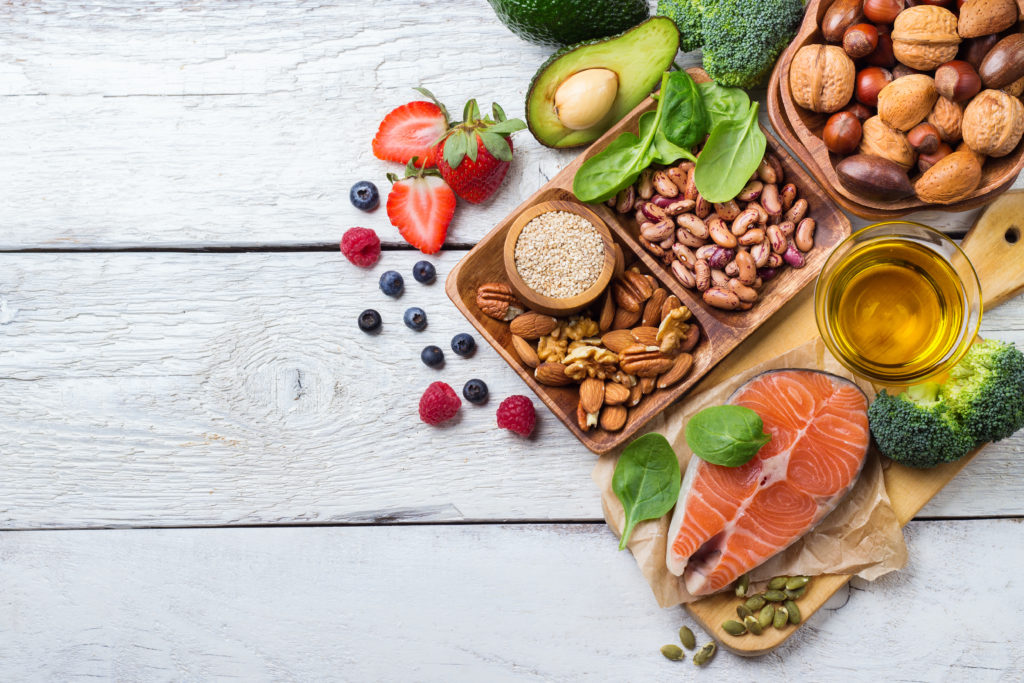Hunger x Appetite
Hunger is a complex physiological sensation often associated with the need for food, and arises specifically in the hypothalamus region of the brain, due to the reduction of the adipose hormone produced by the fat cells and increases its blood level when eaten directly, but after a period of eating the hormone Lactobacillin decreases with the rise of the gastrointestinal hormone produced by the stomach and intestines, which leads directly to alert the brain nerve in the brain to start the alarms of hunger, usually begins to feel hungry after eating the last meal almost two hours but the smell of food or the image of a favorite dish or even imagine HD food can lead to the same symptoms of hunger.

Fact: Food is life fuel!
After eating the last meal for 12 to 24 hours, the stomach begins to contract. Each contraction lasts for 30 seconds, followed by the pain of hunger, which lasts from half an hour to an hour and a half.
The pain of hunger is at its peak after staying for three days without food and then begins to fall, although it does not completely disappear until the body gets the necessary food and nutrients.
In the early stages of feeling hungry or thirst increases the movement and activity both in humans or in animals to push to find food, but after a period begins to decline and begin to begin signs of tiredness and fatigue to appear on it.
Do you believe that every second about 4000 people lose their lives because of hunger !!

Is hunger or appetite what drives us to eat? In fact, we can see that both influences are the cause of the trend towards food, emphasizing that hunger is a process that is completely different from appetite and can not be meaningful in any way.
Hunger is a physiological need for food that occurs as a result of hypoglycemia after a certain period of eating, resulting in a direct lack of energy for the body.
While appetite is a need or a psychological reflection that occurs when you see delicious food or when your nose chokes the food you prefer, leading to an involuntary psychological response accompanied by a physiological sensation such as increased salivation or stomach cramps.
The difference between hunger and appetite is exactly what is known as satiety. For example, in the case of hunger, the body is only one dish, but appetite is the reason for eating more in response to the sweetness of the sight or the taste of taste
How geography affects our sense of hunger!
The geographical location in which humans are present and their impact on the climate in that region is directly reflected in the sense of hunger.
The human feeling of hunger increases in cold places and tends to the items containing calories higher sweets and fatty foods that warm the body more,
While the inhabitants of the hotspots are more appetizing towards light foods, salads, cold juices and fruits of all kinds.
What are the physiological changes that occur in the body when we feel hungry?
Stomach:
After two hours of stopping eating, the stomach has completed the digestion process to begin to shrink to push the remaining food to the intestines. These contractions extend along the intestine in order to move the food, but when the stomach becomes empty the contractions cause the air age to produce audible sounds that sometimes reach embarrassing levels. .
The Blood:
The main goal of food is to get the cells to the energy needed for them, the digestive system converts food to glucose, which in turn meets the insulin produced by the pancreas, which helps glucose to access the cells to get the need to perform various functions, store excess glucose in the liver until needed, After about 4 hours, the blood glucose level starts to drop, causing a feeling of weakness and depression that drives us to eat again.
The Brain:
A sense of hunger leads to a state of turmoil and impulsiveness. The ability to focus and to make the right decisions is reduced, so be alert to your actions and be careful to make any decision when you are hungry!
How to overcome hunger?
As a result of all the results of the studies on feeling hungry, the idea of overcoming hunger and alleviation and the development of programs to determine the number of daily meals and times, which was the consensus on the need to divide the daily meals to four: breakfast, lunch, snack after the afternoon and dinner.
throughout the day or even one meal in which to eat food until reaching the threshold, resulting in a disruption in levels of glucose in the bloodless secretion after 4 pm, which leads to feeling the need for more fat Sugars and excess calories to overcome their hunger.
Finally … How does feeling full?
In the brain and in the area above the spinal cord there is a small gland containing what can be called the center of appetite, the region where the manufacture of hormones and chemical elements that control hunger and appetite, it receives signals from the stomach and blood that no need for more food I’ve satisfied!
Now you must have started feeling hungry … probably not because of the need for food but your reading of the article is tantamount to an appetizer !! Share your feedback on comments.

